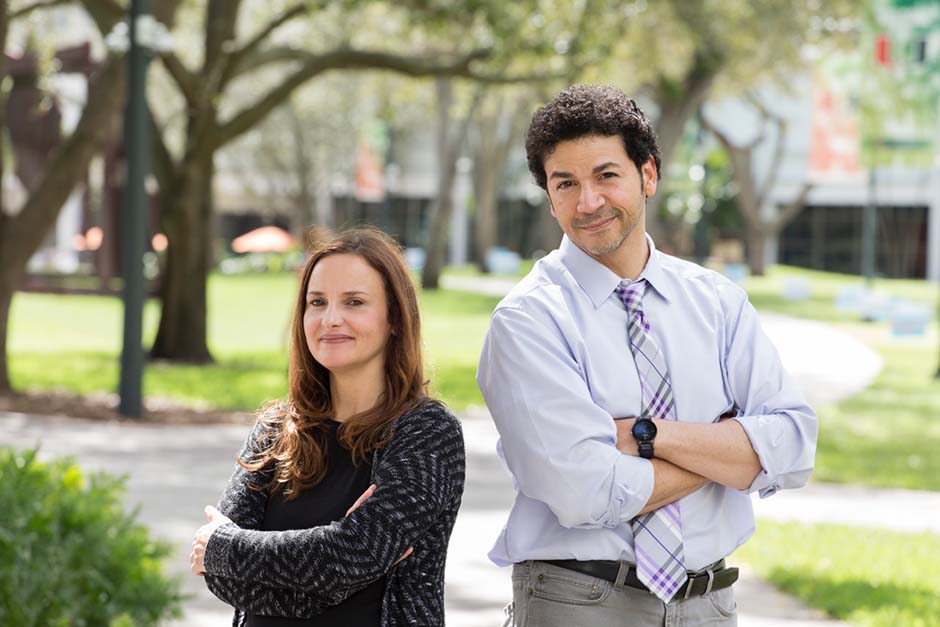Recently, A&S News spoke to Assistant Professors Julio Agustin Matos, Jr. and Sandra Rieger about what makes them tick in the world of science and performing arts. Both faculty members started the 2018-2019 academic year teaching at the College of Arts and Sciences.
A&S News: When did you first become involved in theater and when did you know you that you wanted to teach?
Matos: I always knew that I wanted to teach, and I always knew I would go into the arts. So when I starting at FSU in Tallahassee, I was both a music and math education major. Unfortunately, after receiving my first "D" in math, I realized music was probably the way to go! I majored in Musical Theatre and subsequently worked professionally in New York for seventeen years before transitioning to acting at Columbia University and eventually directing at Penn State. The theatre is what I know and, therefore, I am honored to bring my training, skills, and experience to the students of the U.
A&S News: Looking back at your career in theatre, what was the most challenging role you’ve encountered and why?
Matos: Perhaps the most challenging experience was in Bells Are Ringing in which I portrayed the featured role of the Latino delivery boy, "Carl." This was before "diversity" was trending; overt stereotypes were quite commonplace. Unfortunately, although the production was set in the 1950s, I found it extremely challenging to portray antiquated stereotypes and, after opening on Broadway, I gave my notice to depart the production. I was immediately ostracized by the community; even some friends were dumbfounded, unable to understand how I could walk away from a Broadway contract.
A&S News: Do you have a favorite play or musical that’s currently on Broadway?
Matos: I am excited to see Daniel Fish's production of Oklahoma! that embraces diversity without commentary. There is also the gorgeous The Band's Visit that offers positive portrayals in Middle Eastern representation—I had the chance to work with composer David Yazbek and am a big fan of his compelling rhythmic sounds. Also, I'm hoping to Choir Boy before it closes next month in New York. Broadway is thriving right now so there is something for everyone.
A&S News: What do you love most about your research and the work you’re conducting in the lab here at UM?
Rieger: I am working on the crosstalk between sensory nerve endings in the skin and skin cells under conditions of injury and also appendage regeneration. For instance, zebrafish and salamanders have the remarkable capacity to regenerate their fins and limbs, and nerve signals play a role in this process. We are currently comparing zebrafish fin regeneration mechanisms to mice, which can regenerate their digit tips as young adults. I am also interested in the mechanisms that lead to injury-dependent sensory axon regeneration and cell migration, which are both necessary processes to close skin wounds.
A&S News: In the world of biology and science, who has inspired you and why?
Rieger: My graduate and postdoctoral advisors inspired me the most. Both were junior investigators and full of great ideas and energy. I also appreciate that I spent about two years in a start-up biotech company during my undergraduate studies where I learned about the importance of quality control and how research is translated into the clinic.
A&S News: Why is it important for UM undergrads to work in the lab alongside their professors and peers?
Rieger: They get hands-on experience and learn how to approach research questions. They also learn how to troubleshoot and think critically about their research and experimental outcomes. Students with early research exposure are those who typically excel later in their careers and are more competitive in obtaining research funding.

